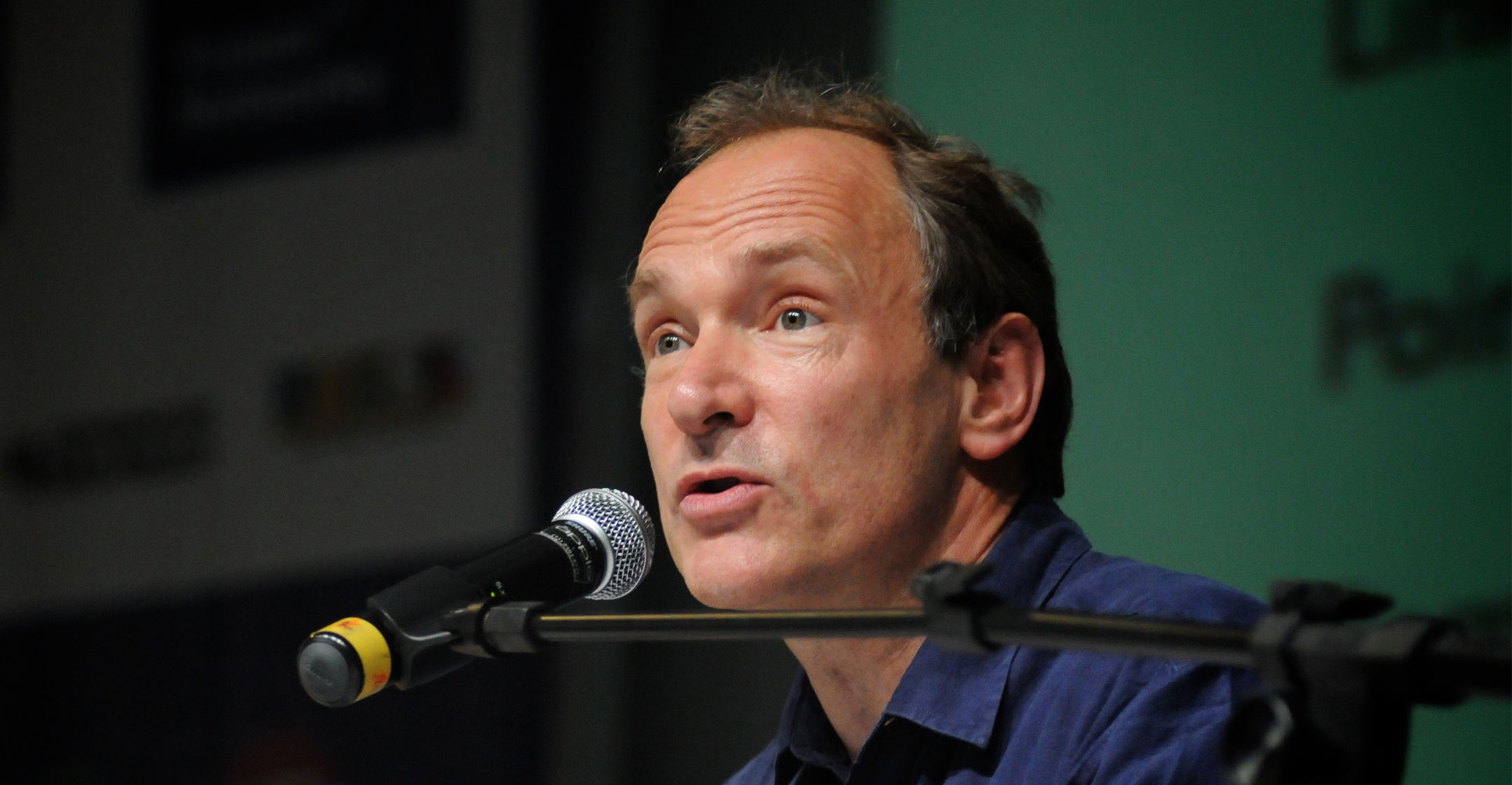
Wouldn’t it be wonderful, with the wealth of information available on the Internet today, to go back to the nice village feel of the Web’s earliest days, when it was free to almost everyone who had access to it, personal data wasn’t bought and sold, important decisions weren’t made by algorithms and online bullying, harassment and disinformation were non-issues outside a few un-moderated Usenet newsgroups?
Well, Tim Berners-Lee, who’s credited with inventing the World Wide Web, appears to believe we can get at least part of the way there if we all agree that we should.
Through his World Wide Web Foundation, the British computer scientist has started a campaign to draw up a new “Contract for the Web” — a kind of Internet Magna Carta — that would make it a safer, nicer, more equitable place to be; a communication medium that serves progress rather than a space for hatred, abuse and fake news. The intellectual foundations of the campaign are laid out in an accompanying report:
The web is under threat — but the Web we want is not out of reach. It’s up to us to overcome these threats and ensure the Web remains an open platform that is truly a force of good for everyone.
The report lists ways in which the Internet is broken. Yearly growth in new Internet users in less developed countries, according to the report, has fallen to just 15% in 2017 from 41% in 2014. The user base in developing countries is skewed heavily toward men. About 54% of all Web pages are in English, although three quarter’s of the world’s population doesn’t speak it with native proficiency.
Meanwhile, in more developed countries, people have privacy and safety concerns, don’t understand online companies’ terms of service and suffer from regular data breaches. Automated decisions are being made by flawed, biased algorithms (for example, ads for higher-paying job opportunities aren’t being displayed to women) and online abuse is rife. People are getting access to the Internet via a tiny group of giant tech companies. Some 90% of searches go through Google, more than half of cloud services run on Amazon, 2.2 billion people use Facebook at least once a month.
 Everywhere, governments are stepping up censorship and surveillance efforts.
Everywhere, governments are stepping up censorship and surveillance efforts.
This is a familiar litany by now, but the report is a useful attempt to draw up a list of priority problems. It also makes clear that most cannot be fixed by the free market. The countermeasures suggested by Berners-Lee’s foundation require lots of government intervention. Who apart from the state could “develop smart policy that fosters competition and drives prices down”, expand public access and build the broadband infrastructure to help increase Internet access for all? Who else can “put into place comprehensive data protection laws and strong operational frameworks” and “ensure automated decisions are explainable and accountable to the people they are meant to serve?” Who else but government is interested in putting out content in minor languages?
And, obviously, if the censorship and surveillance were rolled out by governments, they’re also theirs to roll back.
Yet it’s hard to imagine states turning Berners-Lee’s initiative into some kind of binding international convention. Is there any chance of the US, China and Russia all signing up to a document granting Internet users the rights they thought they had before the Web was commercialised and commit funding to global infrastructure projects? Extremely unlikely.
As one might expect, early signatories to the supposed “Magna Carta” include Facebook and Google, willing to jump on any public relations bandwagon to help them reverse the growing opprobrium toward Silicon Valley. Instead of complying with Europe’s “privacy by design” requirements for their software, these companies get a chance to portray themselves as responsible corporate citizens, perhaps by picking an inexpensive programme or two from the agenda endorsed by Berners-Lee.
One state has hastened to sign up, too: France, which can’t even make independent decisions on most of the issues listed in the foundation’s report because it’s part of the European Union.
With due respect to Berners-Lee’s attempts to recreate the bright-eyed enthusiasm of the Internet’s early years, the Web is long past attempts at self-regulation and voluntary ethics codes. The commercialised Internet of today is no longer run by idealists. It’s a huge, largely unregulated market dominated by monopolies with massive lobbying budgets. At this point, it’s time for decisive government intervention to regulate them. Nothing else will cut it.
An international convention for the Internet would certainly be useful, above all to set rules for cyber warfare but also to make sure governments don’t wreck the Internet as they regulate it. Such a document, however, would bear little resemblance to Berners-Lee’s “contract”. It would have to be far more practical to be workable. — (c) 2018 Bloomberg LP

